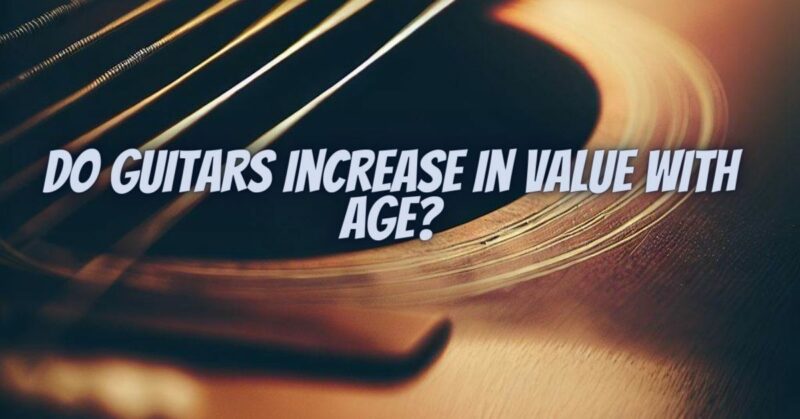Whether or not guitars increase in value with age depends on a number of factors, including the brand, model, condition, rarity, and provenance of the guitar. In general, high-quality, well-maintained guitars from reputable brands are more likely to increase in value over time. Additionally, guitars that are associated with famous musicians or that have a unique history are also more likely to increase in value. However, there are no guarantees, and even the most valuable guitars can lose value if they are damaged or neglected.
Here are some of the factors that can affect the value of a guitar over time:
- Brand: Guitars from popular brands, such as Fender, Gibson, and Martin, are more likely to increase in value than guitars from less well-known brands. This is because these brands have a proven reputation for producing high-quality instruments.
- Model: Some guitar models are more popular and desirable than others. For example, certain Fender Stratocaster and Gibson Les Paul models are known for their excellent sound and playability, and they are often in high demand from collectors and players. This increased demand can drive up the value of these models over time.
- Condition: The condition of a guitar is a major factor in determining its value. Guitars that are in excellent condition with minimal wear and tear are more likely to increase in value than guitars that are damaged or worn. This is because guitars in good condition are more desirable to collectors and players.
- Rarity: Rare guitars are more likely to increase in value than common guitars. This is because rare guitars are in higher demand and there is a limited supply of them. For example, guitars that were produced in limited quantities or that have unique features are often more sought-after by collectors.
- Provenance: The provenance of a guitar can also affect its value. Provenance refers to the history of a guitar, including who has owned it and what it has been used for. For example, guitars that have been owned by famous musicians or that have been used on famous recordings are often more valuable to collectors.
In addition to these factors, the overall market for guitars can also affect the value of individual guitars. If the demand for guitars is high, then the value of guitars is more likely to increase. Conversely, if the demand for guitars is low, then the value of guitars is more likely to decrease.
If you are considering buying a guitar as an investment, it is important to do your research and choose a guitar that is likely to hold its value or even increase in value over time. You should also consider your own playing style and needs when choosing a guitar. After all, a guitar is a musical instrument, and it is meant to be played and enjoyed.
Here are some tips for increasing the value of your guitar:
- Buy a guitar from a reputable brand and model.
- Keep your guitar in excellent condition by cleaning and maintaining it regularly. This includes things like changing the strings, polishing the body, and lubricating the hardware.
- Store your guitar in a safe place when you are not using it. This will help to protect it from damage and the elements.
- Have your guitar professionally set up and adjusted regularly. This will help to ensure that it plays its best.
- Make any necessary repairs promptly. Do not let small problems turn into big ones.
- Keep all original documentation and accessories that came with your guitar. This can add value to your guitar, especially if it is a rare or vintage model.
By following these tips, you can help to ensure that your guitar retains its value or even increases in value over time.


